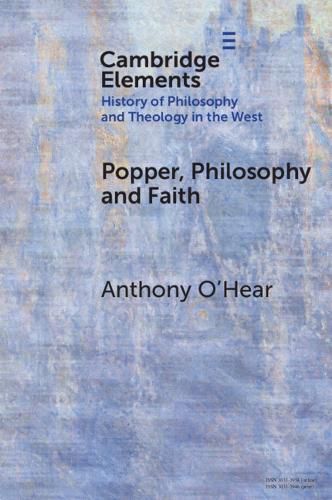Readings Newsletter
Become a Readings Member to make your shopping experience even easier.
Sign in or sign up for free!
You’re not far away from qualifying for FREE standard shipping within Australia
You’ve qualified for FREE standard shipping within Australia
The cart is loading…






This Element aims to make good an imbalance in scholarly work on the thought of Karl Popper. Towards the end of his life he developed a dualistic view of the self, and connected to it, a model of reality consisting of three worlds: first the inorganic world; a second level domain of consciousness; and a third world of ideas, institutions and concepts. This third world develops beyond the ideas and understanding of its human inventors. The implications of these later developments has not been fully considered, nor has his idea that his critical rationalism rests on an irrational faith. These are considered against the context of his more famous work on science and the open society. Popper saw his late work in quasi-Platonic terms, and the similarities and differences here are explored. Does Popper's work as a whole tend in an unfulfiled Platonic direction or need a religious foundation?
$9.00 standard shipping within Australia
FREE standard shipping within Australia for orders over $100.00
Express & International shipping calculated at checkout
Stock availability can be subject to change without notice. We recommend calling the shop or contacting our online team to check availability of low stock items. Please see our Shopping Online page for more details.
This Element aims to make good an imbalance in scholarly work on the thought of Karl Popper. Towards the end of his life he developed a dualistic view of the self, and connected to it, a model of reality consisting of three worlds: first the inorganic world; a second level domain of consciousness; and a third world of ideas, institutions and concepts. This third world develops beyond the ideas and understanding of its human inventors. The implications of these later developments has not been fully considered, nor has his idea that his critical rationalism rests on an irrational faith. These are considered against the context of his more famous work on science and the open society. Popper saw his late work in quasi-Platonic terms, and the similarities and differences here are explored. Does Popper's work as a whole tend in an unfulfiled Platonic direction or need a religious foundation?